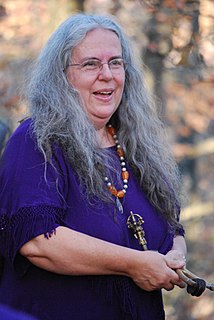A Quote by C. Day Lewis
Summer has filled her veins with light and her heart is washed with noon.
Related Quotes
I fell for her in summer, my lovely summer girl, From summer she is made, my lovely summer girl, I’d love to spend a winter with my lovely summer girl, But I’m never warm enough for my lovely summer girl, It’s summer when she smiles, I’m laughing like a child, It’s the summer of our lives; we’ll contain it for a while She holds the heat, the breeze of summer in the circle of her hand I’d be happy with this summer if it’s all we ever had.
I think that one morning, the Papess woke in her tower, and her blankets were so warm, and the sun was so golden, she could not bear it. I think she woke, and dressed, and washed her face in cold water, and rubbed her shaven head. I think she walked among her sisters, and for the first time saw that they were so beautiful, and she loved them. I think she woke up one morning of all her mornings, and found that her heart was as white as a silkworm, and the sun was clear as glass on her brow, and she believed then that she could live, and hold peace in her hand like a pearl.
He caught her, she fell, he caught her in his arms, he held her tightly unconscious of what he was doing. He held her up, though tottering himself. He felt as if his head were filled with smoke; flashes of light slipped through his eyelids; his thoughts vanished; it seemed to him that he was performing a religious act, and that he was committing a profanation. Moreover, he did not feel one passionate desire for this ravishing woman, whose form he felt against his heart. He was lost in love.
In I Praise My Destroyer, Diane Ackerman demonstrates once again her love for the specific language that rises from the juncture of self and the natural world, and her skillful use of that language. Whether she turns her attention to the act of eating an apricot 'the color of shame and dawn,' or to 'the omnipotence of light,' or to grief when 'All the greens of summer have blown apart,' her linking of unique images, her energetic wit and whimsy, her compassionate investment in life, always bring new pleasures and perceptions to the reader.
But will I always love her? Does my love for her reside in my head or my heart? The scientist in her believed that emotion resulted from complex limbic brain circuitry that was for her, at this very moment, trapped in the trenches of a battle in which there would be no survivors. The mother in her believed that the love she hadd for her daughter was safe from the mayhem in her mind, because it lived in her heart.







































